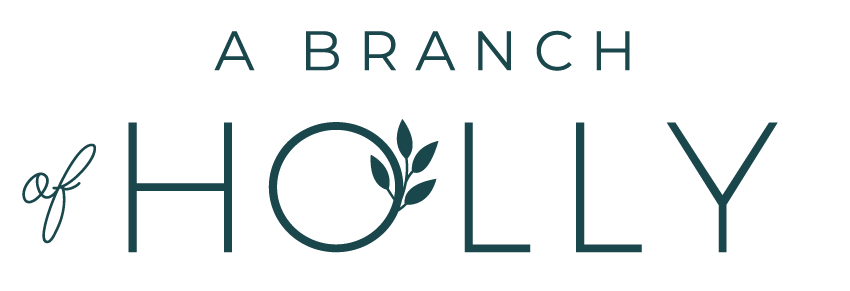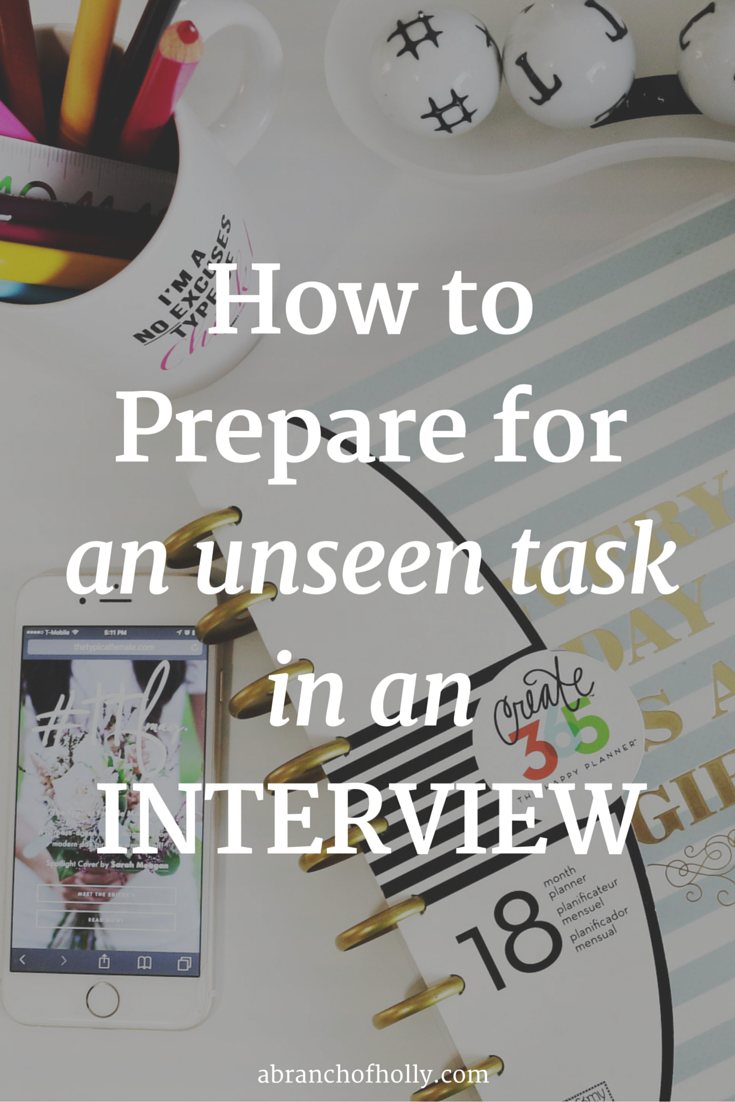How To Prepare For An Unseen Task In An Interview
Applying for a job used to be simple. You’d submit an application, hopefully be invited for an interview and then wait to find out if you got it.
Now, it’s completely different.
Interviews today don’t just consist of an interview. The likelihood is you’ll have to do:
At least two interviews
A presentation
Possibly one or two tasks
Now, preparing for the interview and your presentation is fine. You can do that.
BUT HOW DO YOU PREPARE FOR A TASK THAT YOU’RE NOT EVEN GOING TO SEE?
Luckily for you, I've been in this situation. So today, I wanted to give you some tips for how you can prepare for an unseen interview task.
P.S Feel free to bookmark this for when you need it in the future!
#1 Find Out if YOU'VE got a Task
Usually, for a formal interview, you’ll be there all day, even if your interview is only at 1pm. They'll probably give you an introduction and then you’ll wait around until you’re seen.
So that means that (hopefully) you’ll be given an outline of the day.
There are three different ways you can find out if you’ve got an unseen task to do:
You’ll find out in the email they send you to invite you to interview
You’ll find out in the timetable of the day
You can ask them
You probably won’t have to do the last one. For the interview for the job I'm in now, I found out about my presentation in the email. But attached was an outline of the day – as in the times my interview and presentation were going to take place. That’s when I found out about the task.
If all else fails, you can email your contact to ask more information about the day itself. Don’t worry about looking keen. Asking questions makes you look good because you’re making sure you’re going to be prepared.
I’d bet that for any creative / writing / marketing role, you’ll have to do a task. But even if you’re going into management or business – an unseen task is still really likely.
My brother is studying for a Politics Masters at the moment and all the graduate schemes he’s applying for will include a task or a group task. So no matter what industry you work in, a task could be a possibility.
#2 Start Thinking about What the Task Could Be
This is the hard part. Where do you even start?! There are endless things you could come up with. But you’ve got to think strategically. And here’s how you do it.
It’s going to be related to your job. If you’re applying for a writing job, you’re not going to be given a photography task. If you’re applying for a job as an accountant, you’re not going to be asked to write a press release.
Think about the type of job you’re applying for and try to narrow it down to three main aspects. Look at your job description. What will the three main areas of your job be?
Take this as an example. From my job description, I narrowed down the main areas of my job to be:
Design
Writing
Social Media
I'm a marketer and I market through communication. This means I have to market through words, images and also communicate to different audiences. Design, writing and social media cover the three main areas of my job. This is where most of my responsibilities lie.
So once you’ve got the three main areas, you can start to think about what sorts of tasks you could be asked to do for each one.
I’ll give you an example of mine:
Design – design a poster to market something
Writing – write a press release/news article
Social Media – create a plan for a social media campaign
These might all sound quite broad, but they’re supposed to be. It’s going to be very difficult for you to get specific. But if you’ve got the basic idea, you’ll feel a lot more prepared.
Also think about things like whether you’ll be doing it at a computer. All the little details can contribute to how you perform on the day.
#3 Practice
Yes you can practice for a task! Here’s what I asked myself:
Can I practice creating a poster?
Yes.
Can I practice writing a press release?
Yes.
Can I practice coming up with a social media campaign?
Yes.
You don’t have to go into a lot of depth and spend hours doing it. As long as you know what you’d do if you were give this as a task, that’s fine. If you can come up with a plan before your actual interview, you’ll save loads of time when you’re in there.
#4 Go Prepared
If you do all these things you’ll go to your interview feeling prepared. You’ll be ready for what’s thrown at you and you will be able to do it.
I walked into my task where I had to design a poster to promote Open Events at the College. I had to use the brand guidelines, including text and colours, on either Photoshop or InDesign.
Now this was very specific. If someone had applied for the job without a knowledge of Photoshop or InDesign then they wouldn't have been able to do it.
So you can see from this how it helps employers narrow down their candidates. They take everything into account.
It was something I predicted – designing a poster. And I was also able to practice it beforehand so I had a lot more time in the actual task to polish it up.
Here are just a few quick things to try and remember when you’re in a task:
Read the instructions really carefully. Follow along with your finger – I do this!
Read them again
Leave yourself at least 5 minutes to check through your work if not ten
Make your you’re answering the question and doing what the task asks you to do
Breathe, take your time and stay calm
Have you been in an interview with an unseen task? What’s the biggest thing you’ll take away from this post for the future?

